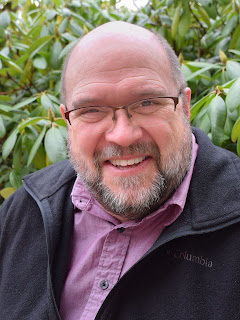Public Discourse – Communication
Happy New Year! I have been trying to
do this blog on a regular basis and have failed miserably. So, I have made a
resolution to do a blog a month (my actual goal is every other week, but I
didn’t want to set too high a mark to begin with😊!).
Like it or not, 2019 marks a year
where we will be overwhelmed with people sharing their opinions, ideas, and
righteous indignation as we head into another presidential election, have a
divided congress, and – at least for the United Methodist Church – make some far
reaching decisions about who we are and what we believe. I thought that I would
begin 2019 then with some thoughts on communication, and what is known as
“public discourse.”
At several points in this blog I will quote from
this article: The Current State Of Public Discourse By Kovie Biakolo, April 20th
2013 found on the website: https://thoughtcatalog.com/kovie-biakolo/2013/04/the-current-state-of-public-discourse/ . So
wherever italicized text appears it is a quote from here.
In order to begin this blog, I need
to define what I mean by public discourse. The term public discourse [refers] to
communicated issues of public culture that affect individuals and groups in a
given civilization. Most of our public discourse is constructed in the
environment of the nation-state as that is largely the context in which public
discourse takes place…public discourse is communication and at its heart
communication is an accompanied experience that involves initiated expression
as well as response.
Communication;
talk with one another not at or to one another. Communication, sharing in a
dialogue where both parties speak AND listen. Communication, a thoughtful
expressing of what one person thinks, believes, etc. and a willingness to
listen to what the other has to offer of their own thoughts, beliefs, etc.
Communication isn’t a dogged holding on to one’s thoughts and beliefs in a
dogmatic or self-righteous way. It is a sharing where both parties come to hear
what the other has to say and the reasons they have for saying what they say
and a discussion of those reasons. The goal is to connect with one another, to
understand each other better and to allow yourself to consider a different
perspective or viewpoint.
I am not naive enough to believe that
everyone comes to a discussion on equal footing. Nor do I think that we all can
totally step outside our biases or the circumstances that influence and inform
us. The public culture is affected by a
multiplicity of factors – politics, religion, ideology, economic philosophies,
and individuals and groups’ conception of attitudes towards what is and what
should be the values of people living in a nation-state. When we participate in
communicating any of the above mentioned criteria, we are participating in
public discourse. Given that some voices are more powerful than others, people
do not participate in the public discourse equally or identically. Nonetheless,
the state of public discourse in the United States is one that in the ideal,
gives people the freedom to voice opinions, support, and grievances openly and
without fear.
I crave public discourse. I want to know why someone believes
differently from me. I want to know what reasons lay behind the values and
beliefs they hold. I want to have another share with me their deep convictions.
What I don’t want is for the other to come at me with an argument for why their
way of seeing things is the only way to see things. It used to be that those on
the more conservative end of the spectrum tended to be less interested in
public discourse and more interested in telling others why their beliefs and
values were wrong. But over the last few years both ends of the spectrum have
become guilty of forgoing public discourse for self-righteousness. What we need
is for both ends to recognize that the way forward isn’t one way or the other
it is a way found through communication and public discourse.
Not everything can or should be defined by what any one group or
individual thinks is the “right” way of living. We are a pluralistic society
where we value individuals and their rights to freedom of belief and expression
and we cannot focus in on a narrow understanding of what is right or good.
Sure, there must be some basic understandings of what is right and good, but one
group or belief system cannot dominate at the expense of another when we are
talking about the society at large.
It can and maybe should be different when you get into sub-groups
of the society, like a particular faith and its values and beliefs. The United
Methodist Church has reached a point where – because of basic differences in
how to understand God, the Bible, and living faithfully – we cannot continue as
we are. There are possible ways to stay together and allow for different ways
of believing but I am not too optimistic that these ways will win out in the
end. It is my hope that we can find a way to communicate with one another, to
hold public discourse so that the way forward is one that isn’t defined by one
group or way of believing but is a path that truly considers what all think and
feel. A decision will be made, and it will cause some to leave but it doesn’t
have to split us if we can find a way to understand one another.
I really hope that 2019 can be defined as the year of public
discourse where we finally communicate with one another and practice the art of
compromise and consensus. That is my prayer for this new year.



Comments
Post a Comment